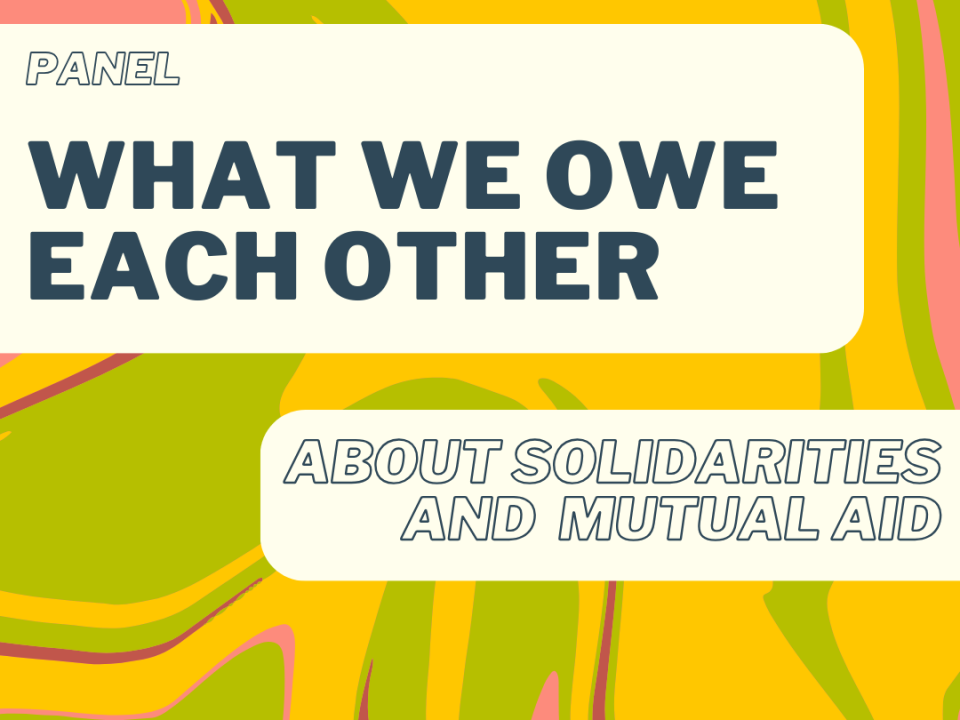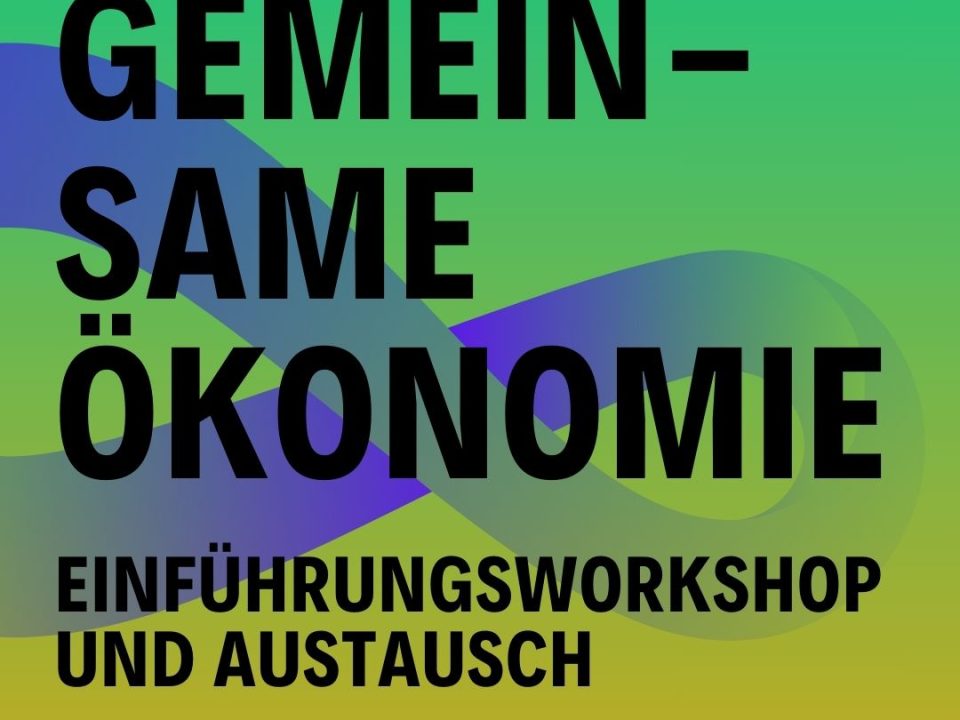OFFENER BRIEF: Atlanta – War da was?
16.04.2021
DISSOLVING TERRITORIES | kulturgeographien eines neuen eelams III.I
16.04.2021In solidarity with Asian communities under racist and sexist attack, we also publish the open letter of April 16th 2021 of the project group of the Asian Film Network (BAFNET), Deutsche Asiat*innen Make Noise (DAMN*), DIASPOR.ASIA, ichbinkeinvirus.org and korientation, the network for Asian-German perspectives e.V.:
For Daoyou Feng, Hyun Jung Grant, Suncha Kim, Soon Chung Park, Xiaojie Tan and Yong Ae Yue
Open Letter
Atlanta – what exactly happened?
Against anti-Asian racism and silence! For cross-community solidarity and decolonized remembrance!
Exactly one month ago today, on March 16, 2021, six Asian immigrant women from China and Korea and two white clients were murdered in three Asian massage parlors in Atlanta, Georgia by a young white Christian fundamentalist. Activists from Asian-diasporic communities held a candlelight vigil for the victims of the racist and sexist attacks at the Peace Statue Against Sexual Violence Towards Women in Berlin on March 23, 2021. A rally was also held in front of Brandenburg Gate across from the U.S. Embassy on March 28, 2021.
We are a diverse group of people with different stories, from different Asian German communities, as well as from other Asian diasporas. We demonstrate transnational solidarity with Asian American communities. With our political engagement and action, we want to raise awareness for and oppose anti-Asian racism. This can only be done in solidarity with the fight against other forms of racism as well as sexism and classism!
With dismay, we notice that the socio-political significance of this anti-Asian mass murder continues to not be recognised in the U.S. and, to an even lesser-degree, in Germany. Politically, the massacre of innocent and unarmed victims has not yet been classified as a terrorist attack, nor has it been prosecuted as a racially-motivated hate crime. Yet, there is no question that the murders were premeditated and targeted Asian women in Asian-diasporic areas with inhuman brutality. Given the scale and gravity of this event, we are disappointed and angry; however, we are not surprised that the majority of German media has paid little to no attention to it. Furthermore, insufficient information was reported on the historical and social context and background. German politics and society have also failed to acknowledge these murders. These failures perpetuate a tradition in which anti-Asian racism is systematically underestimated in society, institutionally negated, and still, too often, made invisible.
We reject the vilification and refuse to be scapegoats for the COVID-19 pandemic. More than 3,750 attacks against Asian Americans have been recorded in the U.S. since the beginning of 2020. In Germany, too, verbal and physical attacks on Asian Germans have risen drastically. The fact that statistics on anti-Asian racism only started to be gathered and documented recently, is telling. Yet, anti-Asian racism is not a new phenomenon in Germany. A system of anti-Asian racism established roots in Germany when Germany colonized Chinese and Pacific territories in the 19th century. The racist pogroms in Hoyerswerda in 1991 and in Rostock-Lichtenhagen in 1992, as well as the murders of Nguyễn Ngọc Châu and Đỗ Anh Lân in Hamburg in 1980, Phan Văn Toản in Fredersdorf in 1997, Duy-Doan Pham in Neuss in 2011, and the rape and murder of Yangjie Li in Dessau in 2016, among others, demonstrate examples of historical continuity. Our commitment against anti-Asian racism is fundamentally connected to anti-racist struggles and historical experiences of other communities of color. This includes, for example, confronting NSU terrorism, the attack in Hanau, and our support for the Black Lives Matter movement.
One year after the racist terrorist attack in Hanau, there is still no federal strategy to combat racism. It remains unclear how the measures presented by the Kabinettausschuss gegen Rechtsextremismus und Rassismus (Cabinet Committee for the Fight Against Right-Wing Extremism and Racism) are to be implemented. The CDU’s blocking of the Demokratiefördergesetz (the Democracy Promotion Law) also demonstrates, once again, that the fight against racism and right-wing extremism is not prioritized and that the commitment of civil society organisations is not valued.
Our demands:
1. We call on the German government to recognise anti-Asian racism and recognise Asian and Asian-diasporic people as a vulnerable group worthy of protection in their “National Action Plan against Racism.”
Furthermore, Germany is called upon to conduct transparent data collection on both a political and legal level to identify systemic structural and institutional marginalization, exclusion, and exploitation of Asian-diasporic persons as a racialized, ethnicized, and culturalized group of people in Germany.
2. We demand the acknowledgement of Asian/Asian German perspectives in institutional decolonisation processes as well as the recognition of multiple perspectives in the politics of remembrance.
In the context of decolonisation initiatives, it is vital to critically confront and examine the institutional, cultural, and educational patterns of exclusion and thought. Areas in Africa, parts of Asia, and the Pacific were also targets of German colonial expansions. A postcolonial Germany is only possible if the political demands of an inclusive, discrimination-free, and democratic society are respected. To achieve this, the equal inclusion and perspectives of community organisations, post-migrant scholars, and cultural workers have to be taken into account. We also support the demands for the clarification of colonial cultural theft and its immediate restitution. We are also in favour of reparations to all former colonies of Germany, although these colonial crimes cannot be erased or amended.
3. We demand that anti-racist learning approaches be enshrined in the educational system – from daycare to university.
In order to ensure the longevity and sustainability of structural changes and to fight racism, the revision of curricula in educational institutions is indispensable. This includes a critical analysis of and confrontation with German colonial history and its lasting effects up to the present day, migrant knowledge and perspectives regarding past and present migration, as well as the confrontation with different forms of racist discrimination.
4. We need institutional structures that can adequately represent the spectrum of social diversity–from the topics to the people–this is particularly applicable to the media sector.
Journalism schools, film and art colleges, media publishers, funding institutes, and editorial offices are of particular importance, because their work can (re)produce racist narratives or make a meaningful impact and contribution towards coexistence with less discrimination. We do not want to be alone with our grief and resistance. We are grateful that many people from different communities of color and also white people from German society demonstrate their solidarity and support us in our protests. We don’t want to just react, we want to be increasingly proactive and engage in an exchange of solidarity with other post-migrant organisations and communities. We call on all interested people to take a stand against anti-Asian racism. It is close to our hearts to join together, equally, and oppose all globally intertwined forms of racism, sexism, neocolonial exploitation, and oppression.
Solidary organisations, institutions, and groups, as well as individuals can support this open letter as co-signers even after its publication!
Permalink: www.korientation.de/atlanta-offener-brief
Contact email address: kontakt@asiatische-deutsche.org
Hashtag: #StopAntiAsianRacism
Initiative Group (FLINTA alphabetical) Sara Djahim (korientation – Netzwerk für Asiatisch-Deutsche Perspektiven e.V.), Jee-Un Kim (korientation – Netzwerk für Asiatisch-Deutsche Perspektiven e.V.), Victoria Kure-Wu (ichbinkeinvirus.org), Thị Minh Huyền Nguyễn (ichbinkeinvirus.org), Thủy-Tiên Nguyễn (korientation – Netzwerk für Asiatisch-Deutsche Perspektiven e.V.), Tú Qùynh-nhu Nguyễn, Cuso Ehrich (Diaspor.Asia), Dieu Hao Do (BAFNET), Kien Nghi Ha.



